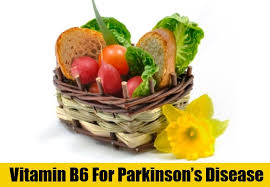
Breaking News
 HERE'S WHAT NO CASH ACTUALLY MEANS (Dave Ramsey re-post)
HERE'S WHAT NO CASH ACTUALLY MEANS (Dave Ramsey re-post)
 The Silver Shift: Why Stackers Are DUMPING 90% Silver & Buying SilverBitz!
The Silver Shift: Why Stackers Are DUMPING 90% Silver & Buying SilverBitz!
 Eye-bouncing - #SolutionsWatch
Eye-bouncing - #SolutionsWatch
 'Targeted, Antisemitism': 16 Dead, 38 Injured After Father & Son Terrorists Attack...
'Targeted, Antisemitism': 16 Dead, 38 Injured After Father & Son Terrorists Attack...
Top Tech News
 This tiny dev board is packed with features for ambitious makers
This tiny dev board is packed with features for ambitious makers
 Scientists Discover Gel to Regrow Tooth Enamel
Scientists Discover Gel to Regrow Tooth Enamel
 Vitamin C and Dandelion Root Killing Cancer Cells -- as Former CDC Director Calls for COVID-19...
Vitamin C and Dandelion Root Killing Cancer Cells -- as Former CDC Director Calls for COVID-19...
 Galactic Brain: US firm plans space-based data centers, power grid to challenge China
Galactic Brain: US firm plans space-based data centers, power grid to challenge China
 A microbial cleanup for glyphosate just earned a patent. Here's why that matters
A microbial cleanup for glyphosate just earned a patent. Here's why that matters
 Japan Breaks Internet Speed Record with 5 Million Times Faster Data Transfer
Japan Breaks Internet Speed Record with 5 Million Times Faster Data Transfer
 Advanced Propulsion Resources Part 1 of 2
Advanced Propulsion Resources Part 1 of 2
 PulsarFusion a forward-thinking UK aerospace company, is pushing the boundaries of space travel...
PulsarFusion a forward-thinking UK aerospace company, is pushing the boundaries of space travel...
 Dinky little laser box throws big-screen entertainment from inches away
Dinky little laser box throws big-screen entertainment from inches away
 'World's first' sodium-ion flashlight shines bright even at -40 ºF
'World's first' sodium-ion flashlight shines bright even at -40 ºF
Doctor In Italy Quells Parkinson's With Overlooked Vitamin Cure

In recent weeks the world has learned the news media creates fake news and/or completely shuns significant news stories to match its own politically correct agendas. So an unequivocal cure for a major brain disease goes unreported. Shame on CNN, CBS, ABC, NBC, the BBC, Reuters, Associated Press and the New York Times.
For a disease considered incurable, a physician in Italy has begun to provide a common B vitamin to successfully treat a debilitating motor-nerve disease commonly known as Parkinson's disease. The importance of this startling discovery has escaped major news outlets. It should be heralded on television and in newspapers worldwide. But it has only been reported by an obscure European news source. [Ultima Edizione.eu] (Be sure to click the before-and-after video tabs.)
History of vitamin B1 and Parkinson's
Physician James Parkinson first described a "shaking palsy" in 1817. [Cold Spring Harbor Perspectives in Medicine 2011] Today, 200 years later Parkinson's disease is still considered an incurable disease.
Parkinson's disease emanates from the loss of dopamine-producing cells in the brain. Approximately 60-80% of dopamine-producing cells are damaged before symptoms arise. Dopamine is a nerve-transmitting chemical in the brain.
It has taken two centuries for a vitamin-phobic medical profession to hesitantly begin to treat Parkinson's disease with vitamin B1 (thiamin).
Historically the link between Parkinson's disease and thiamin deficiency has been agonizingly slow.
Thiamin, vitamin B1, was the first vitamin to be discovered. Vitamin B1 was first synthesized in 1936. [Annals New York Academy Sciences April 1962] So dietary supplementation was possible from that point forward.
It took till 1967 for the first published report that a decline in brain dopamine levels of pigeons was due to experimentally induced thiamin deficiency. [International Journal Neuropharmacology July 1967]
A link between thiamin deficiency and low dopamine levels was discussed in 1987 in an experiment that attempted to determine why rats tend to eat mice (muricide). Low dopamine levels induced by a shortage of thiamin in the diet were linked to this abnormal animal behavior. [Pharmacology Biochemistry Behavior 1987]
In 1988 researchers noted a thiamin-deficient diet decreased dopamine concentration and synthesis in the brain (striatum). The provision of alcohol to lab animals also decreased dopamine levels. The brain region most susceptible to damage (the hypothalamus) in thiamin deficient animals is the very same region of the brain that produces dopamine. [Drug Alcohol Dependency 1988]
In 1999 it was observed that low levels of thiamin in the cerebrospinal fluid were related to Parkinson's disease. [Neuroscience Letters 1999]
In 2013 researchers reviewed all prior published scientific reports and concluded that thiamin plays a role in Parkinson's disease. [CNS Neuroscience Therapy2013]



